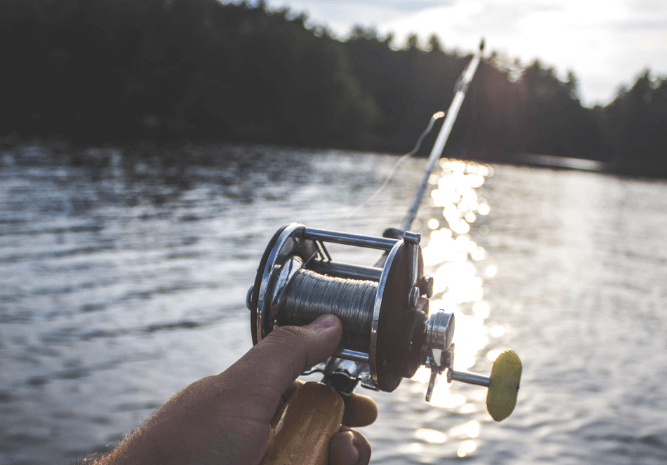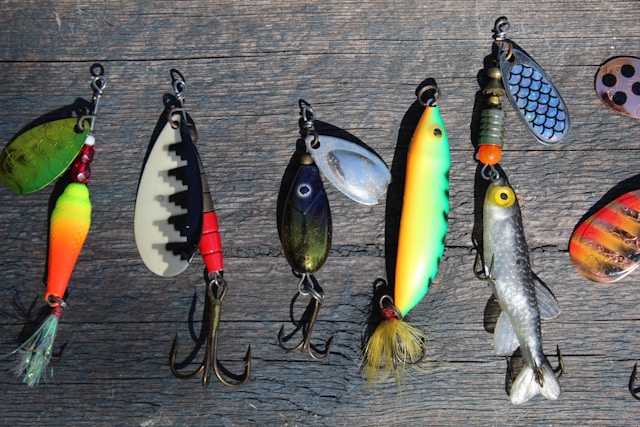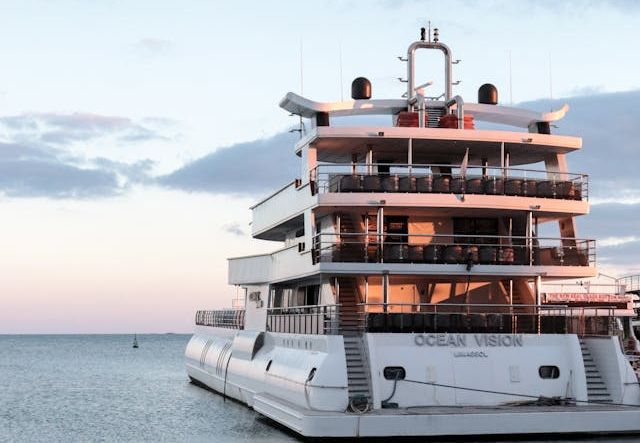Fishing in Minnesota is not just a pastime; it’s an adventure into the heart of nature’s bounty. With over 10,000 lakes and a myriad of rivers and streams, it’s a paradise for anglers. But before you cast your line, you need to know: How much is a Minnesota fishing license?
Understanding Minnesota Fishing License Fees
Get a feel for the fishing license costs in this state before you cast your line into one of its picturesque rivers or lakes. We’ll go over the prices of Minnesota fishing licenses in detail, including annual, temporary, and lifelong options. This information will assist you in making a well-informed decision, regardless of whether you are an avid fisherman or simply organizing a short fishing vacation.
Annual Licenses: A Year-Round Adventure
An annual fishing license is the most economical solution for most anglers who intend to fish regularly throughout the year. With these licenses, you can fish in Minnesota all year round, since they are valid for one full year from the purchase date. Minnesota fishing license prices are broken down as follows:
| License Type | Resident Cost | Non-Resident Cost |
|---|---|---|
| Resident Individual | $25 | $51 |
An annual fishing license in Minnesota can cost more or less based on your residency status, as indicated in the chart above. A reduced rate is available to residents as opposed to non-residents. Those who frequent the waterways of Minnesota can enjoy the freedom and convenience of an annual license.
Short-Term Licenses: Perfect for Visitors
A short-term fishing license is perfect for a weekend retreat or quick visit to Minnesota if that’s how long you intend to spend fishing. These licenses provide a lot of leeway and can be purchased for either 24 or 72 hours. Affordable licenses are available for purchase to both residents and non-residents. The breakdown is this:
- 24-hour License: $12 (Resident and Non-Resident);
- 72-hour License: $14 (Resident and Non-Resident).
Travelers who are interested in fishing in Minnesota for a short period of time but don’t want to commit to an annual license can consider purchasing a short-term license.
Lifetime Licenses: A Lifetime of Fishing Joy
Lifetime fishing licenses are a great investment for those who plan to fish in Minnesota for many years. These licenses are perfect for both permanent residents and visitors, as they grant you access to all of the fishing options in the state for the rest of your life. Lifetime licenses are priced differently for different age groups:
- For ages 0-3: $302;
- For ages 4-15: $437;
- For ages 16-50: $843;
- For ages 51 and above: $546.
You can enjoy fishing in Minnesota without having to renew your license every year with a lifetime license. Serious anglers who call Minnesota home or who frequently visit the state for fishing will find these features especially appealing.
Specialty Licenses and Stamps

In addition to the standard fishing licenses discussed earlier, Minnesota offers a range of specialty licenses and stamps to cater to specific angling needs and preferences. These special categories and additional stamps are designed to accommodate various fishing situations and activities. Let’s delve into the details of some of these specialty licenses and stamps:
- Married Couple License: Fishing can be a wonderful bonding experience, and the Married Couple License is tailored for couples who enjoy fishing together. This specialty license allows both spouses to fish legally without the need for separate individual licenses. It provides an affordable and convenient option for couples who share their love for angling;
- Shelter License: Minnesota’s winters offer unique opportunities for ice fishing, and many anglers take advantage of it. However, if you plan to use an ice fishing shelter, there are specific regulations in place. In certain situations, you may be required to obtain a Shelter License. This license ensures compliance with state guidelines and ensures that your ice fishing experience is both enjoyable and lawful;
- Trout Stamp: A Trout Stamp is required in Minnesota for any trout fishing activity. In most cases, this stamp is required in addition to a regular fishing license. The funds generated from trout stamp sales are often used for trout habitat management and conservation efforts. It’s essential for anyone looking to target trout in Minnesota’s lakes and streams.
Here’s a more detailed breakdown of the Trout Stamp fees:
| License Type | Resident Cost | Non-Resident Cost |
|---|---|---|
| Trout Stamp | $5 | $10 |
This table outlines the cost of the Trout Stamp for both residents and non-residents. Please note that these fees are in addition to the standard fishing license fees.
Where to Purchase Your License
Once you’ve decided on the type of fishing license that suits your needs, the next step is to obtain it. Minnesota offers several convenient options for purchasing your fishing license, whether you prefer to do it online, in-person, or over the phone.
Online Purchase
One of the most popular and convenient methods for obtaining a Minnesota fishing license is through the Minnesota Department of Natural Resources (DNR) website. Here’s how you can do it online:
- Visit the official Minnesota DNR website (www.dnr.state.mn.us);
- Look for the “Buy Licenses” or “Get a Fishing License” section on the homepage;
- Follow the provided prompts and instructions to select your license type, input your personal information, and make the payment;
- Once your transaction is complete, you will receive a digital copy of your fishing license that you can print or store electronically. It’s a good idea to carry a digital or printed copy with you while fishing as proof of a valid license.
In-Person Purchase
If you prefer a face-to-face transaction or need immediate access to your fishing license, you can purchase it at various physical license agents throughout the state. These license agents include:
- Sporting goods stores;
- Bait shops;
- DNR offices.
When visiting an in-person license agent, be sure to bring the necessary identification, such as a driver’s license or proof of residency, to complete your purchase. The agent will guide you through the process, help you choose the right license, and provide you with a printed physical copy of your fishing license.
Purchase by Phone
For those who prefer a quick and hassle-free process, you can call the Minnesota DNR to purchase your fishing license instantly. Here’s how to do it:
- Dial the Minnesota DNR’s phone number. You can usually find this number on their official website or in directories;
- Follow the automated prompts or speak to a customer service representative to provide the necessary information for your license purchase;
- Once your transaction is completed over the phone, the DNR will issue your fishing license, and you will receive it electronically or by mail, depending on your preference.
Please note that purchasing your license over the phone may take a bit longer compared to online or in-person methods, as it involves verbal communication and data entry.
The Importance of a Fishing License

Whether you’re a seasoned angler or just starting, one thing you should always prioritize is obtaining a valid fishing license. In this comprehensive guide, we will delve into the significance of having a fishing license, emphasizing its legal requirements, contributions to conservation efforts, and how it benefits both anglers and the environment.
Legal Requirement and Compliance
A fishing license is not merely a suggestion; it is a legal requirement in most regions, including the United States and Canada. It serves as official documentation that grants you the right to fish in designated areas, for specific species, and during specified seasons. Violating fishing regulations can result in fines, confiscation of equipment, and even legal action.
Key legal aspects of fishing licenses include:
| Aspect | Description |
|---|---|
| Species Restrictions | Different licenses may cover specific species or categories. |
| Seasonal Limitations | Fishing licenses often have defined seasons and time limits. |
| Location Specific | Licenses are usually valid for specific water bodies or areas. |
| Bag Limits | Regulations may limit the number of fish you can catch daily. |
Supporting Conservation Efforts
One of the most compelling reasons to obtain a fishing license is its role in supporting vital conservation efforts. License fees contribute significantly to initiatives that help protect aquatic ecosystems, fish populations, and their habitats. These contributions are essential for maintaining sustainable and healthy fisheries for future generations.
Ways fishing license fees contribute to conservation:
- Fishery Management: Licensing fees finance research and management activities to monitor fish populations and set sustainable harvest limits;
- Habitat Restoration: Funds are allocated to restore and maintain aquatic habitats, including wetlands, rivers, and lakes, benefiting not only fish but also other wildlife;
- Education and Outreach: Many programs funded by fishing licenses focus on educating the public about responsible fishing practices and the importance of conservation.
Benefits to Anglers
Apart from ensuring legal compliance and contributing to conservation, obtaining a fishing license offers several direct benefits to anglers:
- Access to Exclusive Fishing Areas: Fishing licenses often grant access to prime fishing locations that may be off-limits to those without a license;
- Enhanced Fishing Experiences: With proper management funded by licensing fees, you can enjoy a better fishing experience, with healthier fish populations and well-maintained habitats;
- Contributing to Conservation: Anglers who purchase licenses can take pride in knowing that their fees directly support the preservation of aquatic ecosystems and the long-term sustainability of their favorite pastime;
- Legal Protection: Fishing with a valid license ensures you are protected from legal repercussions, providing peace of mind while enjoying your time on the water.
Environmental Benefits
The importance of fishing licenses extends beyond angler benefits; they are crucial for the environment as well. Here’s how:
- Species Preservation: Licensing regulations help protect endangered or overexploited fish species, preventing their decline and eventual extinction;
- Ecosystem Health: Licensing fees contribute to the overall health of aquatic ecosystems, benefiting not only fish but also other aquatic life, such as amphibians, birds, and insects;
- Water Quality: Healthy fish populations are often indicators of good water quality, so the conservation efforts funded by licenses can improve water conditions for all living organisms.
Conclusion
Understanding how much a Minnesota fishing license costs is the first step in your fishing journey. Whether you’re a seasoned angler or new to the sport, Minnesota’s waters are waiting for you. So grab your gear, get your license, and enjoy the serene beauty and excitement of fishing in Minnesota!
FAQ
Generally, no. However, there are certain exceptions like fishing in state parks.
Senior citizens enjoy discounted rates. For current prices, check the DNR website.
Yes, married couples can purchase a joint license at a reduced rate.
You can get a duplicate license from where you originally purchased it.
No, lifetime licenses are only available to residents.



